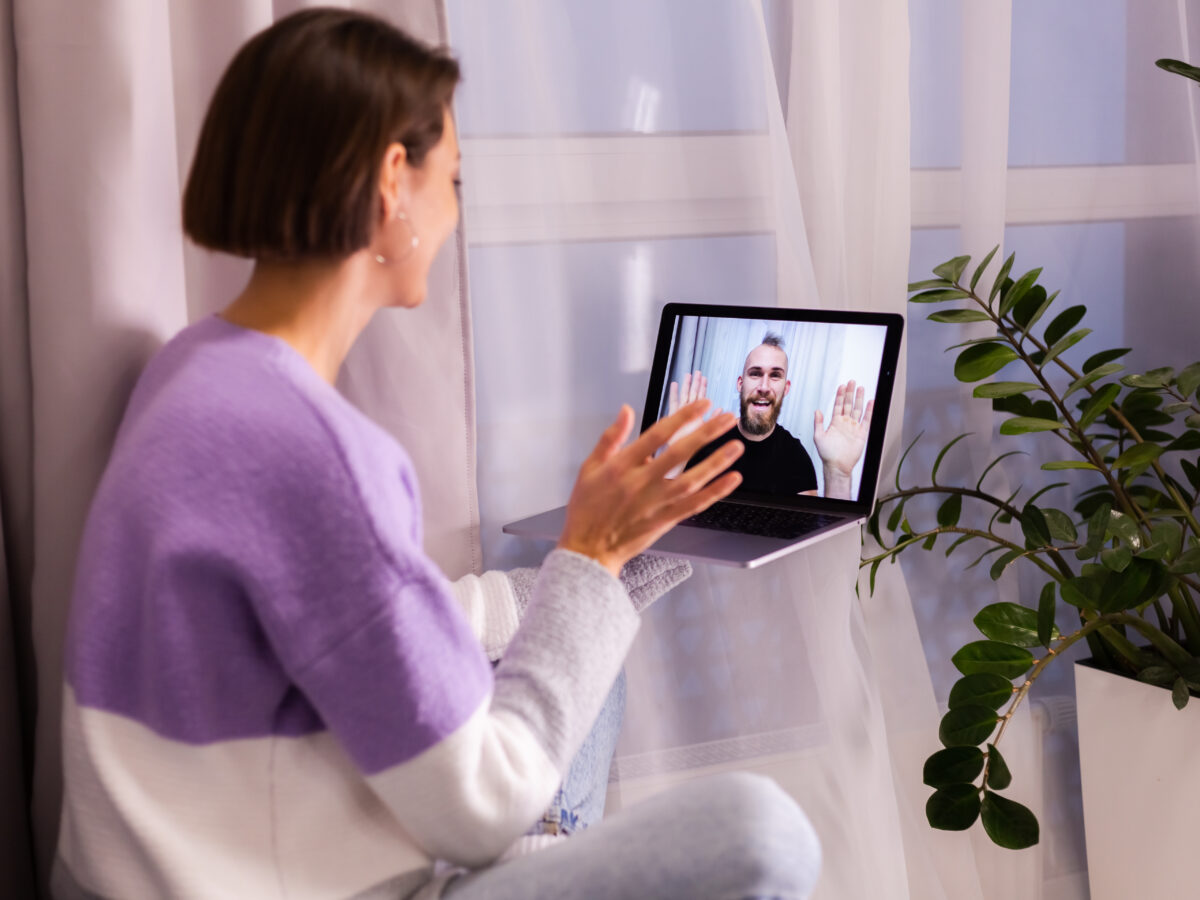In the ever-evolving landscape of mental health care, technological advancements have paved the way for innovative solutions. Online counseling, also known as e-counseling or teletherapy, has emerged as a viable and convenient option for individuals seeking support for their mental well-being. In this digital era, where technology permeates every aspect of our lives, online counseling offers a modern approach to therapy that is accessible, flexible, and effective. Let's delve into how online counseling can support mental health in the digital age.
Accessibility: Breaking Down Barriers
In the realm of mental health care, accessibility has long been a significant concern. Traditional face-to-face therapy often presents barriers that can prevent individuals from accessing the support they need. Geographical limitations, for instance, can be a significant obstacle, particularly for those living in remote or rural areas where mental health services may be scarce or nonexistent. In such cases, individuals may need to travel long distances to access therapy, which can be impractical, costly, and time-consuming.
Moreover, even in urban areas where mental health services are more readily available, individuals may still encounter barriers related to transportation and mobility. Factors such as physical disabilities, lack of reliable transportation, or limited mobility due to age or health conditions can make it challenging for some individuals to attend in-person therapy sessions regularly.
Additionally, the stigma surrounding mental health issues can act as a formidable barrier, preventing individuals from seeking help. The fear of being seen entering a therapist's office or the perceived shame associated with admitting to struggling with mental health can deter people from reaching out for support. This stigma is particularly prevalent in certain cultural or societal contexts where mental health concerns are often misunderstood or dismissed.
Online counseling addresses these barriers by providing a solution that is accessible to anyone with an internet connection. Regardless of where an individual is located geographically, whether it's a bustling city or a remote village, online counseling offers a means of accessing therapy from the comfort and privacy of one's own home. This eliminates the need for individuals to travel long distances or navigate transportation challenges to attend therapy sessions, making therapy more feasible and convenient for everyone.
Furthermore, online counseling can help break down the stigma surrounding mental health by providing a discreet and confidential platform for seeking support. Without the need to visit a physical therapist's office, individuals can access therapy discreetly and privately, reducing the fear of judgment or social stigma. This increased sense of privacy and anonymity can be especially beneficial for individuals from marginalized communities or those who feel hesitant about seeking help due to societal attitudes toward mental health.
Overall, by removing geographical barriers, addressing transportation and mobility challenges, and providing a confidential and stigma-free environment for seeking support, online counseling significantly improves accessibility to mental health care. In doing so, it ensures that individuals from all walks of life have equitable access to the support they need to prioritize their mental well-being and lead fulfilling lives.
Convenience: Therapy on Your Terms
In today's fast-paced world, finding time for self-care can be challenging, and prioritizing mental health often takes a back seat to other responsibilities. Traditional face-to-face therapy sessions typically adhere to standard business hours, making it difficult for individuals with busy schedules to find time for therapy without disrupting their daily routines. This can result in missed appointments, inconsistent therapy attendance, and ultimately, hindered progress in therapy.
Online counseling addresses this issue by offering unparalleled convenience and flexibility, allowing individuals to engage in therapy on their own terms. Unlike traditional therapy, which requires individuals to schedule appointments during set hours and travel to a therapist's office, online counseling provides the freedom to schedule sessions at times that are most convenient for the individual. Whether it's early in the morning before work, during a lunch break, or late at night after the kids have gone to bed, online counseling accommodates diverse schedules and lifestyles.
The ability to access therapy from anywhere with an internet connection further enhances this convenience. Whether individuals are at home, in the office, or traveling, they can connect with their therapist seamlessly through secure video conferencing or messaging platforms. This eliminates the need to factor in travel time to and from therapy appointments, saving valuable time and allowing individuals to fit therapy into their busy schedules more easily.
Moreover, online counseling platforms often offer a range of communication options beyond traditional video sessions, including messaging and phone calls. This flexibility enables individuals to choose the mode of communication that best suits their preferences and comfort levels. For those who may feel apprehensive about video sessions or prefer asynchronous communication, messaging therapy offers a convenient alternative that allows individuals to communicate with their therapist at their own pace and convenience.
The convenience of online counseling extends beyond scheduling flexibility to include practical considerations such as childcare, work commitments, and mobility limitations. Parents, for example, may find it challenging to attend traditional therapy sessions due to childcare responsibilities. With online counseling, parents can schedule sessions during nap times or after bedtime, minimizing disruptions to their family routines.
Similarly, individuals with demanding work schedules or frequent travel commitments may struggle to prioritize in-person therapy. Online counseling offers a solution by allowing individuals to access therapy from anywhere in the world, making it possible to maintain continuity of care regardless of location or time zone. This level of flexibility not only reduces barriers to accessing therapy but also promotes greater consistency and adherence to treatment, leading to more effective outcomes in the long run.
In essence, online counseling empowers individuals to take control of their mental health by providing therapy on their own terms. By offering flexibility in scheduling, communication options, and accessibility from any location, online counseling ensures that therapy fits seamlessly into individuals' lives, rather than being an added source of stress or inconvenience. In a world where time is a precious commodity, online counseling offers a modern solution that prioritizes convenience without compromising the quality or effectiveness of therapy.
Privacy and Comfort: Creating a Safe Space
Online counseling provides a unique opportunity to cultivate a safe and confidential environment where individuals feel comfortable expressing themselves openly and honestly. By conducting therapy sessions from the privacy of one's own home, individuals can eliminate the potential discomfort or anxiety associated with attending face-to-face therapy appointments in a clinical setting.
The familiar surroundings of home offer a sense of comfort and security, allowing individuals to relax and engage more fully in the therapeutic process. This increased comfort level can be particularly beneficial for those who may feel apprehensive about discussing sensitive or personal topics in a traditional therapy setting.
Moreover, online counseling platforms prioritize privacy and confidentiality, employing robust security measures to protect individuals' personal information and ensure that therapy sessions remain confidential. From encrypted communication channels to secure data storage protocols, online counseling platforms are designed to safeguard individuals' privacy and maintain the confidentiality of their therapy sessions.
By creating a safe and private space for therapy, online counseling empowers individuals to explore their thoughts, feelings, and experiences without fear of judgment or intrusion. This sense of privacy and comfort fosters trust and rapport between individuals and their therapists, facilitating a deeper level of therapeutic engagement and promoting positive outcomes in the journey toward mental well-being.

Variety of Modalities: Tailoring Therapy to Your Needs
Enhanced Accessibility for Marginalized Communities
Overall, online counseling enhances accessibility to mental health care for marginalized communities by overcoming geographical barriers, increasing availability of culturally competent care, reducing stigma and discrimination, providing accessibility options for individuals with disabilities, offering affordable services, ensuring language accessibility, and supporting the unique needs of diverse communities. By prioritizing inclusivity and equity, online counseling helps to bridge the gap in mental health care access and promote positive mental health outcomes for all individuals.
Integration of Technology: Harnessing Innovation for Better Care
Online counseling platforms leverage cutting-edge technology to enhance the therapeutic experience and provide more effective care to individuals seeking support for their mental health. By harnessing the power of innovation, online counseling platforms offer a range of features and tools designed to facilitate communication, engagement, and personalized treatment.
Secure video conferencing technology allows individuals to connect with their therapists in real-time, replicating the face-to-face interaction of traditional therapy sessions. This virtual platform enables therapists to observe nonverbal cues, build rapport, and establish a strong therapeutic alliance with their clients, despite physical distance.
Messaging and chat-based therapy options offer additional flexibility for individuals who prefer asynchronous communication or find it challenging to articulate their thoughts and emotions verbally. Through secure messaging platforms, individuals can communicate with their therapists at their own pace, fostering ongoing support and guidance outside of scheduled sessions.
Artificial intelligence (AI) and machine learning algorithms may be utilized to personalize treatment plans and track progress over time. By analyzing data from therapy sessions and client feedback, AI-driven tools can identify patterns, predict outcomes, and tailor interventions to meet the individual needs and goals of each client.
Overall, the integration of technology in online counseling enhances accessibility, convenience, and effectiveness, allowing individuals to access quality mental health care from anywhere in the world. By embracing innovation, online counseling platforms empower individuals to prioritize their mental well-being and embark on a journey of growth, healing, and self-discovery.
Overcoming Challenges: Addressing Concerns and Limitations
Conclusion: Embracing the Future of Mental Health Care
In conclusion, online counseling stands as a beacon of hope in the realm of mental health care, offering a modern and innovative approach to addressing the diverse needs of individuals in the digital age. Through its accessibility, convenience, and flexibility, online counseling breaks down barriers that have long hindered access to traditional face-to-face therapy. By harnessing the power of technology, online counseling platforms provide a safe and confidential space for individuals to explore their thoughts, feelings, and experiences, free from the fear of judgment or stigma.
Moreover, online counseling promotes inclusivity and cultural competence, ensuring that individuals from marginalized communities have equitable access to affirming and supportive care. By offering a diverse range of therapeutic modalities and personalized treatment options, online counseling tailors therapy to meet the unique needs and preferences of each individual, empowering them to embark on a journey of growth, healing, and self-discovery.
As we continue to navigate the complexities of modern life, the future of mental health care is undoubtedly online. With its emphasis on accessibility, effectiveness, and client-centered care, online counseling paves the way for a more inclusive and compassionate approach to mental health support. By embracing the possibilities of online counseling, individuals can prioritize their mental well-being and embark on a path toward greater resilience, fulfillment, and overall flourishing in the digital age and beyond.
Related Articles:
Cultural and Diversity Considerations in Marriage Counseling
The Role of Technology in Marriage Counseling
Online Counseling for Social Anxiety in the Indian Context
Self-Care and Online Counseling: A Holistic Approach to Breakup Recovery in India
Online Counseling for Childhood Anxiety: Strategies and Tips for Parents


